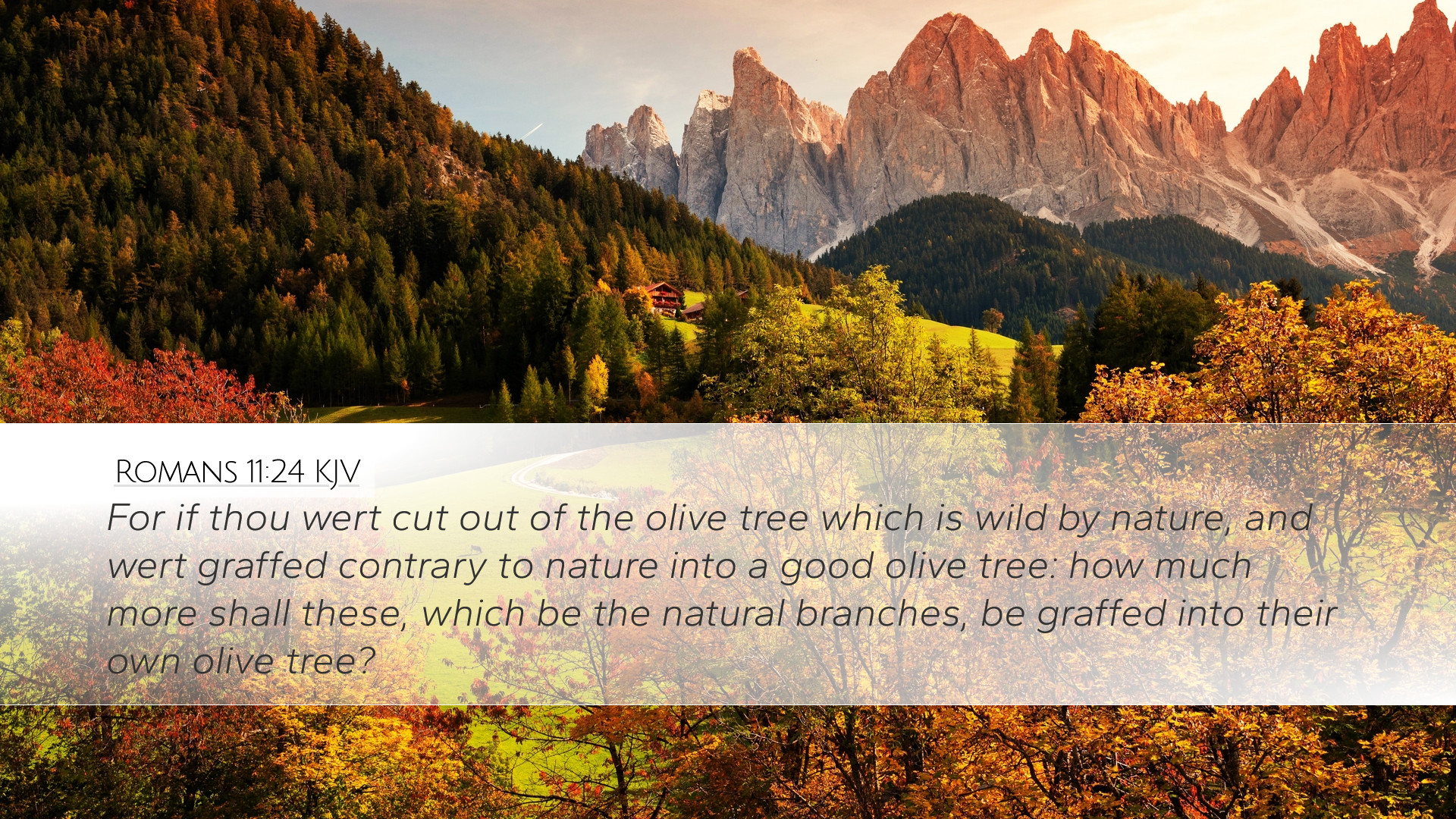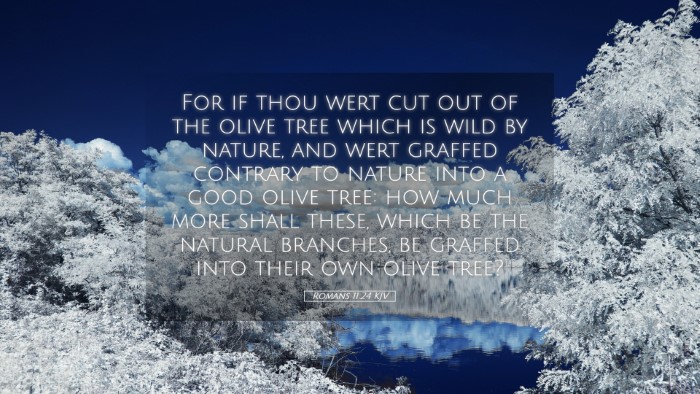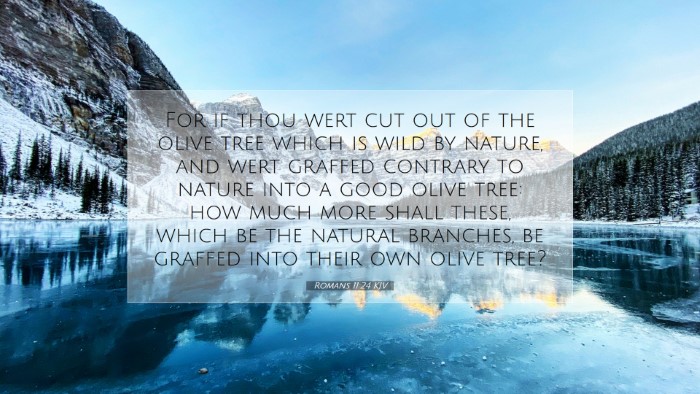Commentary on Romans 11:24
Romans 11:24 states: "For if thou wert cut out of the olive tree which is wild by nature, and wert grafted contrary to nature into a good olive tree: how much more shall these, which be the natural branches, be grafted into their own olive tree?"
Exegesis and Context
In this verse, the Apostle Paul concludes a section of his epistle where he discusses the relationship between Israel and the Gentiles in the context of God's redemptive plan. The olive tree symbolizes God's covenant people, representing both the Jewish nation and, by extension, Gentile believers who have been engrafted into the promises of God.
Insights from Commentators
Matthew Henry's Commentary
Matthew Henry emphasizes the significance of the olive tree as a representation of both the natural branches (the Jews) and the grafted branches (the Gentiles). He notes that the natural branches were broken off due to unbelief, but the Gentiles, who were wild by nature, have been graciously grafted into the tree, showcasing God's mercy and sovereignty in salvation. Henry stresses the assurance that if God can incorporate the wild branches, He is certainly able to restore the natural branches, which points to a future restoration of Israel.
Albert Barnes' Notes
Albert Barnes provides a detailed analysis of the metaphor of grafting. He explains that wild olives were inferior to cultivated ones, and hence, the act of grafting wild branches into a good olive tree indicates a profound change brought about by divine grace. Barnes points out that Paul's argument is not merely historical but also eschatological, suggesting that the future restoration of Israel is a hopeful theme. He argues that if God was willing to accept the Gentiles, the Jews, being the original branches of the tree, have a better claim for acceptance and reinstatement.
Adam Clarke's Commentary
Adam Clarke sheds light on the Jewish understanding of genealogical and spiritual heritage. He notes that the olive tree symbolizes the covenant with Abraham, Isaac, and Jacob. Clarke elaborates on the notion of Gentiles being grafted contrary to nature and highlights the divine intervention that allows this to occur. He asserts that the inclusion of the Gentiles into the covenant highlights the breadth of God’s grace. Clarke reminds the readers that the assurance of restoration for the natural branches encourages humility among Gentile believers, pointing to their unmerited inclusion in the covenant community.
Theological Implications
The theological implications of Romans 11:24 are profound. This verse not only encapsulates the relationship between Jewish and Gentile believers but also reinforces fundamental Christian doctrines of grace, election, and the continuity of God's promises. The imagery of grafting speaks to the transformative power of the Gospel that transcends ethnic and cultural boundaries. It highlights God's faithfulness in fulfilling His covenantal commitments.
Restoration of Israel
One of the significant themes is the anticipated restoration of Israel. The phrase "how much more shall these, which be the natural branches" suggests a certainty about their eventual redemption and reintegration into the olive tree. This has implications for eschatological views within Christian theology, especially concerning the role of Israel in God's plan of salvation. Understanding this restores hope to the Jewish people and places Gentile believers in a position of humility and gratitude.
Unity in Diversity
Romans 11:24 also emphasizes the unity of believers from all backgrounds. The grafting metaphor teaches that all Christians are part of the same spiritual family, regardless of their ethnic origins. This truth calls the church to embody unity and love, embracing the diverse body of Christ as part of God's design.
Conclusion
In summary, Romans 11:24 serves as a powerful reminder of the grace of God that reaches out to all, inviting both Jew and Gentile into His family. Through the insights of commentators like Matthew Henry, Albert Barnes, and Adam Clarke, we gain a deeper understanding of this verse's rich imagery and theological significance. As the church reflects on this passage, may it strive to appreciate the mystery of God's plan and live in unity as one body, enriched by His diverse grace.


